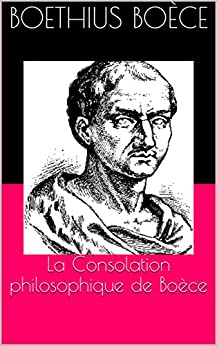ボエティウスの名言
[480 - 524 or 525]
古代ローマ末期の哲学者、政治家。 プラトン・アリストテレス・アルキメデス、プトレマイオスなどをラテン語へ訳し、ギリシア哲学・科学を中世へ伝えた。東ゴート王テオドリックの下で執政官、元老院議長などを歴任するも、陰謀の嫌疑で刑死。著作は、『哲学の慰め』『三位一体論』『カトリック信仰論』『エウティケスとネストリウスとを駁して』『音楽綱要』等。
Nothing is miserable but what is thought so, and contrariwise, every estate is happy if he that bears it be content.
それと思わぬかぎり、悲惨なことなどない。逆にまた、あらゆる財は、それを持つ者が安んずれば幸いなのである。
Who would give a law to lovers? Love is unto itself a higher law.
誰が愛し合う者たちに法を課すというのか。愛はそれ自体が、より高い法であるのだ。
The now that passes produces time, the now that remains produces eternity.
過ぎ去る今は時を生み、留まる今は永遠を生む。
It is because you don't know the end and purpose of things that you think the wicked and the criminal have power and happiness.
物事の目的や意図が分からぬから、悪人や罪人にも力や幸いがあると思うのだ。
Contemplate the extent and stability of the heavens, and then at last cease to admire worthless things.
天の広がりと確かさとを思い、ついには無益なものを崇めるのをやめよ。
Man is so constituted that he then only excels other things when he knows himself.
人というのは、自らを知ることによって初めて、他のものより秀でることができるよう作られているのである。
In other living creatures ignorance of self is nature; in man it is vice.
他の生き物においては、自らを知らざることは自然である。然るに、人間においては悪徳である。
It is not that a man of virtue is honored because of high office, but rather that the office is honored because of his virtue.
美徳の人がその高い地位のゆえに称えられるのではなく、むしろ地位がその美徳のゆえに称えられるのである。
1 - 8 / 8件
 本の読み放題はコチラ |
 本の聴き放題はコチラ |


